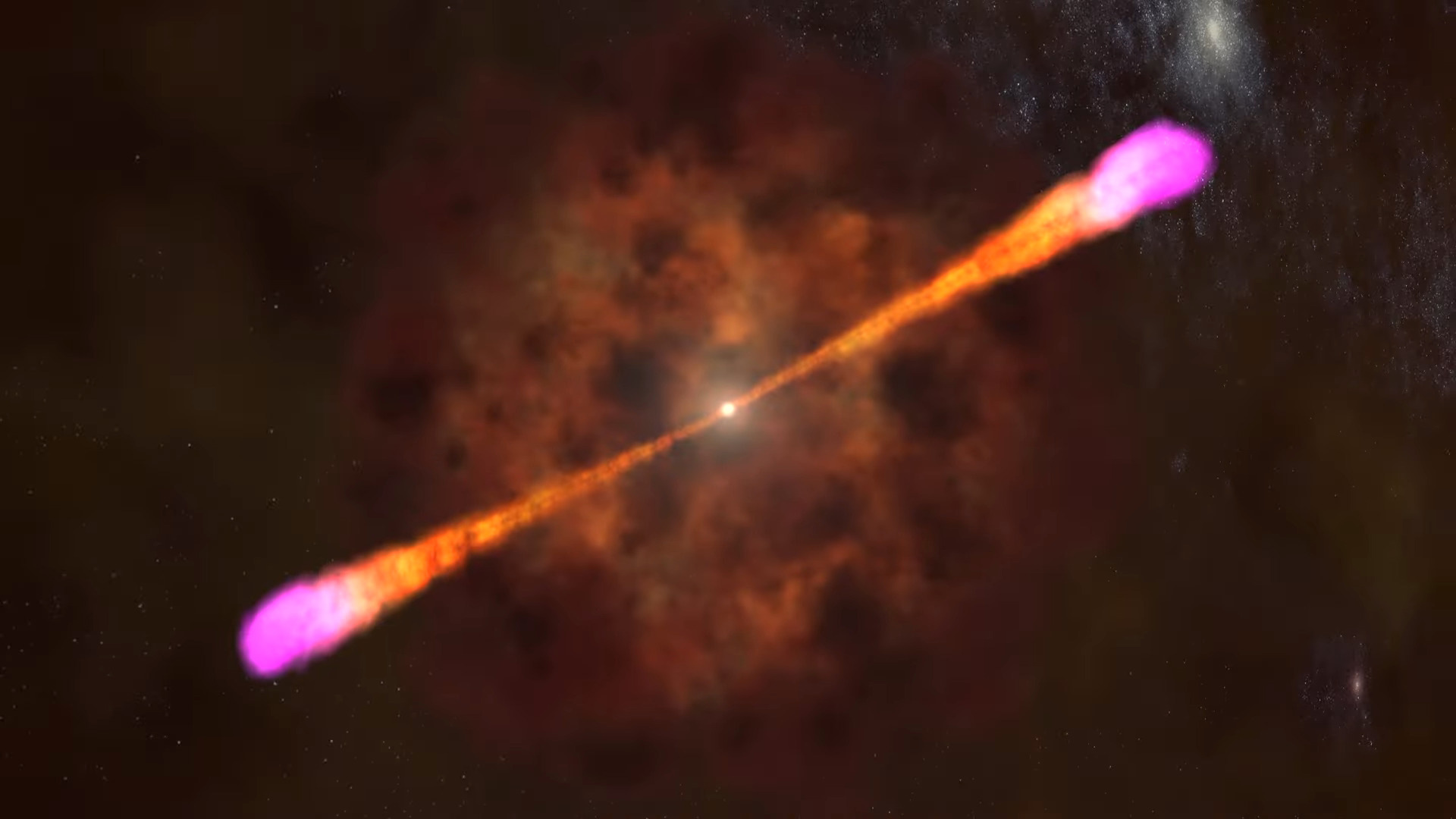
Back in October of 2022, astronomers around the world were baffled and awed by the largest gamma-radiation burst we’ve ever recorded. The burst was so powerful, in fact, that it has been nicknamed the BOAT (Brightest of All Time). Now, almost two years later, the BOAT continues to reveal twisting secrets about itself.
We have already determined that the explosion was the birth of a black hole following the very violent death of a massive star. But, a new analysis of the explosion has revealed more intricate secrets about it, including that it was actually just a very ordinary gamma-ray explosion. Something astronomers are still baffled to have learned.
Being the largest gamma-radiation burst ever recorded is kind of a big deal. But that big deal becomes even more intriguing when we discover that there wasn’t anything at all special about the explosion. Despite seeming brighter than anything we’ve ever discovered, Peter Blanchard, an astrophysicist with Northwestern University, says that the BOAT wasn’t any brighter than previous supernovae.
Of course, gamma-ray bursts like the BOAT are among the most powerful explosions found in the cosmos. They can erupt in as little as ten seconds and yet still release as much energy as our Sun might emit in 10 billion years. They’re kind of a big deal, is what I mean.
And so, with the BOAT having garnered so much attention, Blanchard and his team were curious if we’d spot evidence of these heavy elements following the largest gamma-radiation burst we’ve ever recorded. There was just one problem: the explosion actually blinded our instruments.
And so, Blanchard and his team waited, biding their time, until they could finally get a chance at seeing the supernova for themselves. After around six months, they finally were able to turn the James Webb space telescope toward the region where the explosion had originated. Thus, they found that it was just a pretty standard supernova.
In fact, the only reason that the BOAT was so bright is likely because the gamma-ray burst was directed right at our little planet. Their observations also yielded no evidence of heavy elements beyond calcium and oxygen, again solidifying their thoughts that the BOAT was altogether very ordinary.
Despite that, though, the bright explosion continues to be a record holder in our astronomical books. And it’s still likely to continue being a target of study for years going forward. And who knows, maybe future studies will reveal more about this perfectly ordinary explosion.










